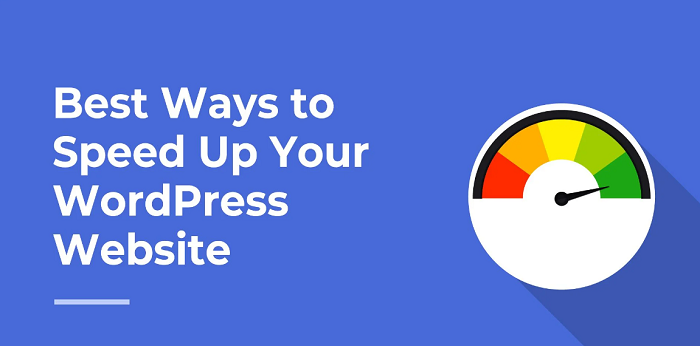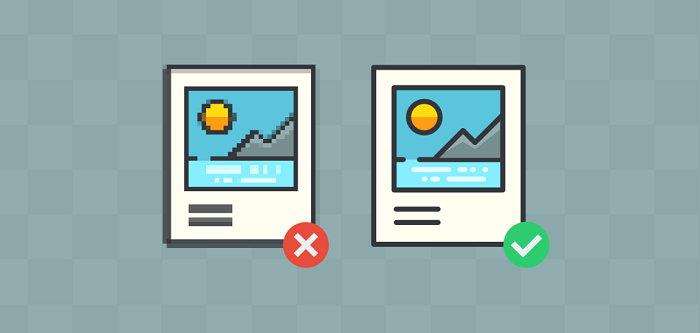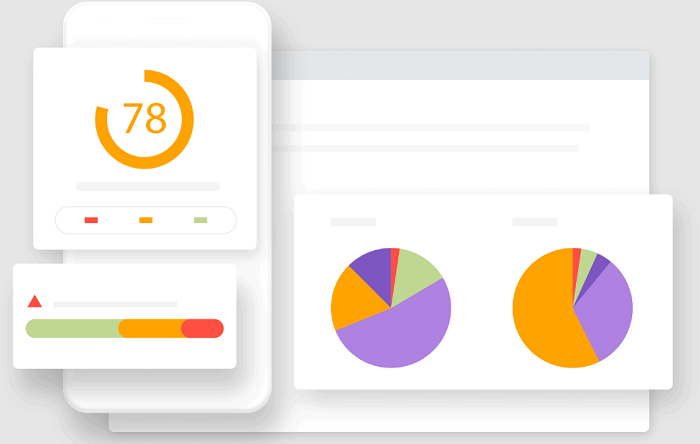What exactly is Page Speed?
The speed at which material on your website loads is called page speed. All elements that make up your website whether prominent like your hosting provider or tiny like the size of an image, impact it.
Not confusing page speed with site speed is a crucial thing to remember. Both impact how Google ranks your website but represent slightly distinct ideas.

Page speed is the time duration a web page’s content takes to load. On the other hand, site speed is the time it typically takes for various web pages to load when a person is browsing your website.
Therefore, your site speed would be automatically optimized if you concentrated on page speed for the various web pages.
What is SEO Page Speed Optimization, and What Do You Need to Know?
The weighting criteria that the Google algorithm uses to determine rankings have changed throughout time.
In the early days of SEO, loading a website with keywords would have helped it rank well. Today, though, the algorithm is more concerned with user experiences, and the importance of improving page performance is due to this very reason.
A website that doesn’t keep you waiting too long offers a satisfying experience to its users.
Therefore, it is no surprise that Google has used page speed as a ranking criterion for websites since 2010.
Google now considers page speed optimization ranking criteria for mobile surfing, demonstrating how crucial it has become to websites. A website’s page speed now affects its desktop and mobile device’s ranking.
Given the rising number of people surfing the internet on mobile devices, these adjustments are only natural. Additionally, it explains why mobile-friendly websites are becoming so crucial.
See Also: Website Problems and How to Solve Them
How Can You Speed Up Your Website?
I would advise you to heed the following advice to enhance your website’s general functionality and loading time:

Turn on compression
Using file compression, developers can compress one or more files into smaller ones. In turn, this lowers the total file size, which lowers bandwidth usage and speeds up page loading.
Minify the HTML, CSS, and JS
Because it can significantly increase your website’s performance, it is always preferable to minify HTML, CSS, and Javascript. Make your page’s resources smaller by using the techniques listed below:
- To minify JS, use UglifyJS2.
- HTML was minified to minify HTML.
- To minify CSS, use CSS Nano.
Lessen Redirect Chains
Limiting the amount of HTTP or WWW redirects is advised to ease the load on Googlebot and shorten the wait time. Additionally, using 301 permanent redirects rather than 302 temporary ones is advised.
An excellent tool for determining the types of redirection and offering recommendations for improving them is GTMetrix.
Reduce the Time To First Byte (TTFB)
Your website’s server is its most crucial component. A quicker server responds to user queries more quickly and gives them results more quickly. A slow server takes a long time to return the initial byte of information, slowing down the site’s loading time. Picking the best web hosting is crucial because your hosting company will have a decisive impact on optimizing TTFB and maintaining your site’s speed.
Make use of browser caching
To take advantage of browser caching, your resources’ request headers must be modified. The webpage gets stored on the local computer when accessed, and a short bit of code is added. htaccess file takes advantage of browser caching. Because data is already saved on the local computer, the website loads significantly faster when the user revisits it.
See Also: Things you need to know about Hosting a website
Image optimization and compression
Giant photos, or large quantities of images, are frequently the leading cause of slow page loads, aside from large portions of JavaScript that clog your server threads. Utilizing an image optimization service like Imagify or TinyPNG can significantly reduce file sizes so that it doesn’t slow down your website.

Users with supported browsers will automatically receive. Web images when visiting WordPress sites running version 5.8 or higher. These are Google’s newest picture formats, created with short load times in mind.
Additionally, properly sized photos can unquestionably speed up the loading of your pages. Make sure to upload a picture that already fits those measurements if your image container has a fixed size of 250 x 250 pixels. However, CSS allows you to automatically resize even the most significant images (max-width:250px; width: 100%; height: auto;). There are additional steps the server and browser must take before the page loads to scale required images.
Moreover, In addition, Web Help Agency offers additional SEO audit services like page speed optimization, where we assist in analyzing the PPC and SEO objectives of our website to improve your website’s overall functioning and loading time.
We offer page speed optimization services that can increase the speed and Speed Score of your website from very low to high levels. To do this, we will compress and optimize your website’s images, among other things.
Why Does Page Speed Matter for SEO?
Page Speed significantly impacts SEO. Perhaps more than anything else, besides having excellent content that immediately responds to your consumers’ search queries, Google has modified its algorithm in recent years to account for user experience. A responsive and speedy site is one of the essential elements for a positive user experience.

When a person visits a website, there is a reasonable probability they will leave if it takes more than a few seconds (if that). Raising the bounce rate for that site. Then, when it notices that bounce, Google comes up with a few theories about why the person might have left. Google would most likely conclude a rapid bounce means the user didn’t locate the content they were looking for. It could be for a variety of causes. In no particular sequence, these are a couple of the best:
- The user exited the page because it took too long to load.
- Features were broken, and the website was not usable.
- The website was completely devoid of data.
- The site’s information was inaccurate in part or its entirety.
- The site’s design made it difficult for the user to discover their question’s solution.
Google wants the best user experience for its customers. In the modern era of internet usage, that entails never having to wait for anything. Ever. We must admit that we do this as well.
We know there are millions of other websites we can visit in the time it takes for a website to load when it takes too long to do so.
It doesn’t matter how excellent your content is if the user gets bored before seeing it; it is the easiest way to think about how page speed affects SEO.
See Also: How much does it Cost to Develop a Portfolio Website?
Final Remarks
Website speed is critical to achieving better organic ranks on Google and other search engines. Because it significantly enhances user experience, Google favors websites that load quickly. To make your website faster and more user-friendly, utilize the tools recommended in this article to check your site’s speed.
